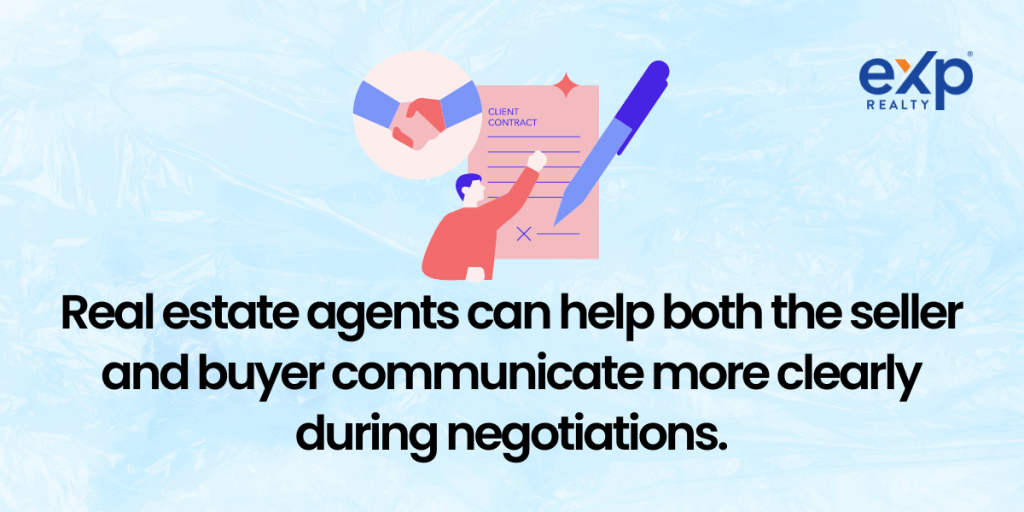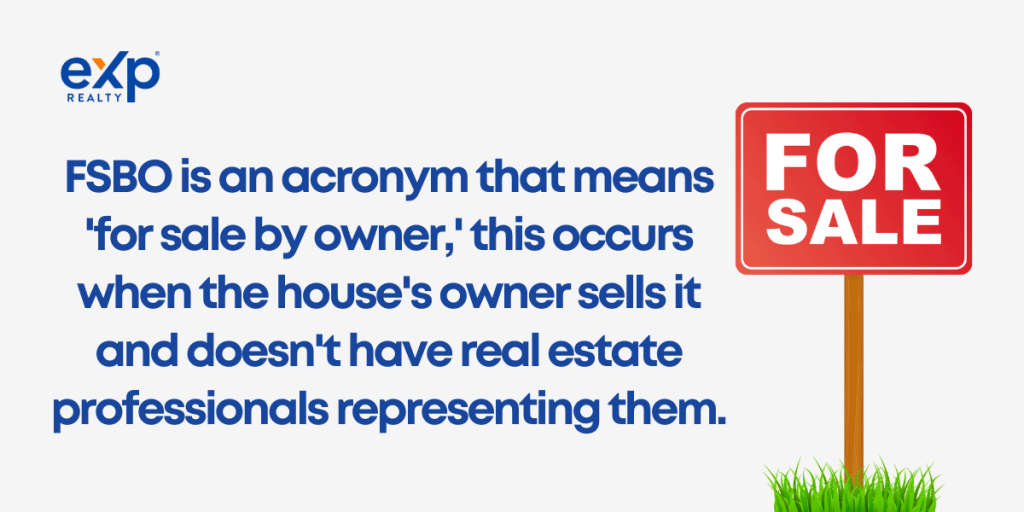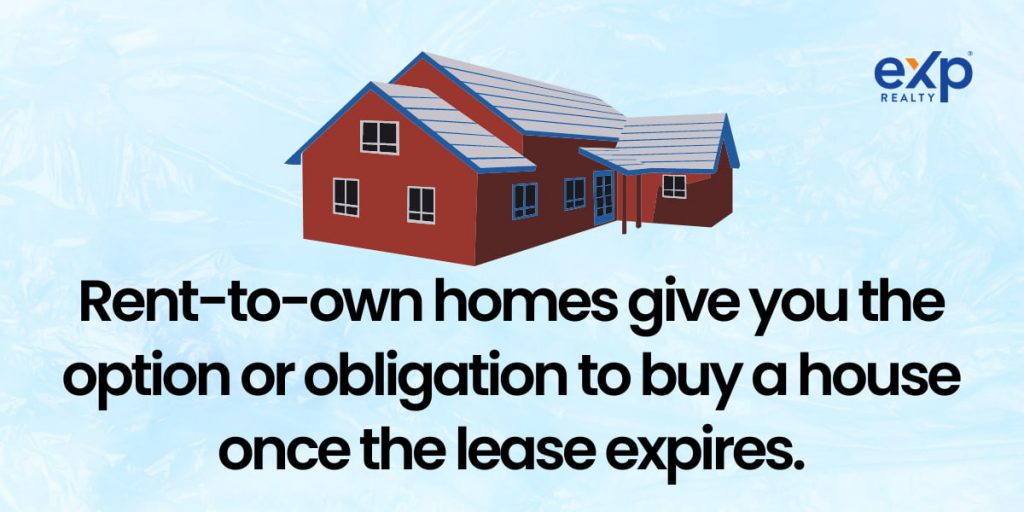In today’s dynamic real estate market, homeowners tend to ask, “How can I best sell my house?” If you’re one of those homeowners, you may find the answers you want in this comprehensive eXp Realty guide.
Whether you’re relocating for a job, downsizing, or simply seeking a change in scenery, we’ll discuss the most effective ways to put your home on the market, ensuring you get the best return on your investment.
Hiring a Traditional Real Estate Agent
A real estate agent is more than someone who puts up the “For Sale” sign on your lawn. They’re a vault of industry knowledge, a negotiator, and often a comforting presence in an otherwise stressful process.
An agent provides invaluable insights into market trends, helping you set a competitive price for your property. Their hyperlocal expertise ensures your home isn’t underpriced or overpriced in its current market.

The selling experience is visual. An experienced agent often brings a network of professionals, including professional stagers and photographers, ensuring your home looks its best in online listings and open houses.
From crafting the perfect purchase agreement to understanding the nuances of closing costs and agent commissions, an agent’s hands-on expertise is unmatched.
Benefits
The benefits of employing a real estate agent during the selling process are manifold:
- Market Analysis and Knowledge: Through comparative market analysis, agents can identify the median price and price range of homes for sale in your area, ensuring you list your home at a fair market value. Their experience and training allow them to spot potential challenges before they arise, ensuring a smoother selling process.
- Guided Selling Experience: From minor repairs to adding a fresh coat of paint, agents provide suggestions to enhance the appeal of your home to prospective buyers.
- Negotiation Skills: Savvy agents have a track record of successfully negotiating sale prices, ensuring you get the best deal possible.
- Network Expansion: Their broad network of professionals, from mortgage lenders to inspectors, makes sure every aspect of your sale transaction is in good hands.
- Legal Compliance: Real estate agents are well-versed in local regulations, ensuring the entire process, from listing to the closing table, is compliant with legal standards.
Potential Drawbacks
However, there are certain considerations homeowners should be aware of:
- Commission Fees: One of the most common concerns for homeowners is the commission fees associated with hiring an agent. Typically ranging from 4% to 6% of the home’s selling price, this fee can quickly add up, especially in higher-end markets.
- Potential for Misaligned Interests: While most agents genuinely strive to get the best deal for their clients, some may prioritize a quick sale over getting the highest possible price.
- Loss of Personal Control: Hiring an agent means entrusting them with major decisions about the marketing and sale of your home. This can feel restricting for homeowners who want more control over the sales process.
- Potential Delays: Relying on an agent’s schedule might mean waiting for their availability for showings, open houses, or meetings. If they’re managing multiple properties, it could cause potential delays in responding to offers.
- No Guarantee of Sale: Even with an agent’s expertise, the house is not guaranteed to sell within a desired timeframe or for the anticipated price. Market conditions, property specifics, or pricing strategy can all influence the outcome.
The For Sale By Owner (FSBO) Option
For Sale By Owner (FSBO), as the name suggests, is a homeowner-driven approach where the property owner assumes the role traditionally held by a real estate agent. Instead of paying commission fees to an agent, homeowners shoulder responsibilities ranging from advertising the property to finalizing the paperwork.
Sellers take the initiative to showcase their homes through online listing services, yard signs, or even leveraging local community boards. They also personally schedule and oversee property visits. Additionally, homeowners manage the required documentation, ensuring it complies with local and state regulations.
Benefits
Opting for an FSBO approach presents several distinct advantages:
- Cost Savings: The most compelling reason homeowners gravitate towards FSBO is the potential savings. By sidestepping agent commissions, sellers might retain a larger chunk of the sale price.
- Full Control: Sellers have complete authority over the entire process, from deciding the list price to choosing which offer to accept.
- Direct Communication: There’s no need for a middle-man. Sellers directly interact with prospective buyers, which can sometimes simplify negotiations and agreements.
- Flexibility in Showings: Without coordinating with an agent’s schedule, homeowners can plan property showings at times that are convenient for them.
- Custom Marketing Approach: FSBO sellers can craft a unique marketing approach that best showcases their property, whether focusing on social media, local advertising, or hosting community open houses.
- Potential for Unique Selling Propositions (USPs): As the homeowner knows the property best, they might highlight USPs that an agent might overlook. From a custom-built treehouse in the backyard to the history of the century-old oak tree out front, homeowners can use intimate knowledge of their property to appeal to specific buyer interests.
Challenges
However, as with any hands-on endeavor, FSBO comes with its set of challenges:
- Expertise Deficit: Real estate transactions can be intricate. Without a solid grasp of the current market conditions, FSBO sellers may inadvertently underprice or overprice their homes. Moreover, navigating the closing process, understanding contract details, and being aware of the required disclosures can be daunting.
- Limited Marketing Reach: Without a real estate professional’s extensive network and tools, sellers might find their marketing efforts unrestricted, potentially limiting the pool of qualified buyers.
- Time-Intensive: The selling process is multifaceted. From fielding phone calls to coordinating showings and handling offers, selling a home is a full-time job. For many homeowners, the time commitment can be overwhelming.
- Negotiation Hurdles: Without an intermediary, negotiations can sometimes become personal or emotionally charged, potentially complicating the sale process.
Sell Your Home in Online Real Estate Marketplaces
The digitization of the real estate sector has given rise to online marketplaces, where homeowners can list and sell their properties with just a few clicks. Platforms like eXp, Zillow, Redfin, and Rocket Homes have become household names, offering a seamless interface for both buyers and sellers.
Benefits
Here are some of the many benefits of selling on digital platforms:
- Wide Exposure: These platforms have vast user bases. With millions of monthly visitors, listings on these sites can quickly gain visibility, reaching potential buyers from various demographics and geographical locations.
- Direct Communication: Sellers and potential buyers can interact directly through built-in messaging features, leading to transparent and streamlined communication.
- Data and Insights: Online marketplaces offer valuable data analytics and insights, from neighborhood price trends to estimated property values. This data can aid sellers in pricing their homes competitively.
- User-Friendly Interfaces: The design of these platforms often prioritizes user experience. Easy navigation, interactive maps, and comprehensive filters can enhance property visibility and appeal to potential buyers.
- Cost-Efficiency: Several platforms offer reduced commission fees or flat-rate service fees, potentially reducing the overall cost of selling a home.
Potential Drawbacks
However, as with any method, there are potential challenges you need to be aware of:
- Increased Competition: The ease of listing on these platforms means numerous properties are up for grabs, leading to fierce competition. A unique selling proposition or aggressive pricing strategy might be necessary to stand out.
- Limited Control: Some platforms might dictate the presentation or marketing aspects of the listing, leaving homeowners with restricted control over how their property is portrayed.
- Reliance on Platform Algorithms: The visibility of a listing often depends on the platform’s algorithms, which determine which properties get prominently displayed. Changes to these algorithms can impact the reach of a listing, potentially reducing its exposure.
- Potential for Scams or Unserious Buyers: With broader exposure comes the risk of attracting individuals who aren’t serious about purchasing or, worse, are attempting scams.
Sell Your Home in Real Estate Auctions
Real estate auctions are events where properties are sold to the highest bidder, usually after a quick and dynamic bidding process. Real estate companies, independent auction houses, or online platforms can organize these auctions.

There are different types of auctions in the real estate world. Traditional live auctions involve bidders being physically present at an auction house or the property’s location. An auctioneer leads the proceedings, and bidders raise their paddles or call out their bids.
Moreover, online platforms allow bidders to participate anywhere. Websites like Auction.com have popularized this format, offering residential and commercial properties.
Benefits
Real estate auctions can offer several distinct advantages:
- Quick Sales: Auctions usually have a set date and time, ensuring that properties get sold promptly, a boon for sellers looking for a fast sale. This can be advantageous for those needing to relocate quickly, settle an estate, or liquidate assets.
- Highly Competitive: The dynamic nature of auctions can sometimes drive the price higher, especially if multiple parties are interested in a property.
- Transparent Process: The open bidding process ensures transparency, with every participant aware of the ongoing bids. This transparency can reassure sellers that they have achieved a fair price.
- Pre-Qualified Buyers: Most auction houses require bidders to pre-qualify for an auction, ensuring that only serious buyers attend. This can minimize the chance of sales falling through due to financing issues or cold feet.
Potential Drawbacks
While auctions can offer advantages, they also come with inherent risks:
- Uncertain Sale Prices: While bidding wars can increase prices, properties will likely sell below the desired price, especially with limited interest.
- Time Constraints: The speed of auctions can be both a blessing and a curse. While they can expedite sales, they also give sellers less time to market the property and generate interest.
- Upfront Costs: Sellers might have to bear some upfront costs, including listing fees or marketing expenses, with no sale guarantee.
Consider Home Cash Buyers
Home cash buyers offer to purchase properties outright without needing traditional financing or mortgage loans. While this method may seem unconventional, it’s an attractive option for homeowners looking for speed and convenience.
These buyers might be individuals, real estate investment firms, or specialized companies that often acquire various types of properties, including family homes, apartments, or rental properties, for their diverse investment portfolios.
Benefits
This method comes with several advantages:
- Swift Transactions: Since cash buyers don’t need to worry about traditional mortgage payments, approvals, or exploring loan options, these sales can close in a week.
- Simplified Sales Process: Selling to a cash buyer usually means fewer steps. Homeowners won’t have to worry about staging their homes for multiple showings or dealing with potential buyers falling through due to financing issues.
- As-Is Sales: Many cash buyers purchase homes in their current condition, which can be particularly beneficial for homeowners with properties that require major repairs.
- No Agent Commissions: Many cash deals occur without real estate agents, so homeowners might save on commission fees.
Potential Risks
Despite the benefits, cash buyers have certain risks:
- Potential for Lower Offers: Cash buyers often look for deals that allow them to earn a return on their investment, which can mean they present offers below the home’s fair market value or a listing price.
- Potential for Scams: While many cash buyers operate with integrity, as with any real estate transaction, there is a risk of scams. It’s crucial to research any cash-buying firm or individual, checking for reviews, past transaction history, and any red flags.
- Lack of Emotional Attachment: Unlike traditional buyers who might purchase their dream home, cash buyers are typically more detached and purely financially motivated. This can lead to more rigid negotiations. Additionally, sellers might miss the emotional satisfaction of knowing their home is going to a family or individual who cherishes it.
Lease Options and Rent-To-Own
Lease options and rent-to-own are alternative real estate strategies that mutually benefit buyers and sellers. At their core, both involve a tenant or buyer leasing a property with the potential to purchase it later. The difference typically lies in the specific terms and conditions set by the agreement.
A lease option is typically a two-part agreement. The tenant can lease a property with the choice to buy it later. They pay an option fee upfront, and a portion of their monthly rent might be credited toward the purchase price if they choose to buy. They aren’t obligated to buy but still have the option if they choose to.
Meanwhile, in a rent-to-own scenario, the tenant agrees to rent the property for a set period, after which they must either purchase the property or forfeit any accumulated rent premiums. This model is more binding than the lease option and typically involves a more structured path to homeownership.
Benefits
Lease options and rent-to-own agreements have a set of distinctive benefits that can make them an enticing choice for both sellers and potential homeowners.
- Attracting Potential Buyers: These methods can appeal to individuals who might not qualify for traditional mortgages due to credit issues but are working towards improving their financial situation.
- Generating Rental Income: The homeowner can benefit from consistent rental payments while the prospective buyer decides or prepares to purchase.
- Securing Higher Sale Prices: Given the unique arrangement, sellers might often negotiate a slightly higher than average sales price, especially if the housing market trends are uncertain.
- Decreased Vacancy: Homes can remain occupied while prospective buyers work towards improving their financial standing, reducing the risks and costs associated with vacant properties.
Potential Challenges
However, like all real estate strategies, lease options and rent-to-own agreements have challenges:
- Complex Legalities: Lease options and rent-to-own agreements require detailed contracts that specify the terms, such as the potential purchase price, duration of the lease, and how much rent goes toward the purchase. It’s essential to work with skilled professionals to ensure all details are adequately addressed.
- Risk to Sellers: If property values rise significantly during the lease term, homeowners might miss out on selling at a higher price in a competitive market.
- Risk to Buyers: On the flip side, if property values decline, buyers might be obligated to purchase a property worth less than they agreed to pay.
- Maintenance Responsibilities: Depending on the agreement, maintenance responsibilities might fall on the tenant since they intend to buy. This can be a gray area and should be explicitly outlined in the contract.
- Default Concerns: If a tenant-buyer defaults or chooses not to buy, the seller might have to restart the selling process, which can be time-consuming and costly.
Alternative Selling Strategies
In an ever-evolving real estate market, sellers continuously seek innovative ways to stand out and gain the attention of potential buyers. The journey from listing a house to sealing the deal involves more than just determining a list price or uploading a few professional photos online.
With the advancement of technology and the changing preferences of prospective buyers, alternative selling strategies have emerged, offering a competitive edge. Let’s explore some of these unique strategies.
Home Staging
Home staging involves arranging furniture and decor to showcase the property’s best features and make it appealing to a broad audience. It’s always a good idea to remove personal belongings like family photos when staging the home, ensuring prospective buyers can visualize themselves in the space.
Some of its benefits include:
- Elevated Marketing: Staged homes often photograph better, resulting in more attractive online listings, the primary way potential buyers view the property initially.
- Increased Buyer Interest: With furniture and decor in place, buyers can better understand the scale and potential of spaces, helping them visualize their life in the property.
- Higher Sale Prices: A beautifully staged home can leave a lasting impression, often leading buyers to perceive its value as higher and, thus, be willing to pay a premium.
- Quicker Sales: Homes that have undergone professional staging often spend less time on the market, as they can capture buyers’ interests more efficiently.
Virtual Tours
Virtual tours have emerged as a groundbreaking way for buyers to explore homes from the comfort of their screens. These digital walkthroughs offer 360-degree views using 3D technology, allowing users to navigate through every nook and cranny of a property.

Among its many benefits include:
- Extended Reach: Virtual tours are accessible to anyone with an internet connection, allowing potential buyers, even from different states or countries, to explore homes they’re interested in.
- Convenience: Buyers can view properties at their own pace and revisit them as often as possible without scheduling multiple viewings.
- Engaging Presentations: Advanced virtual tours can offer interactive floor plans, integrated details about the property type, and even area highlights, enhancing the buyer’s experience.
- Modernized Listings: Properties with virtual tours stand out in online listings, often gaining more views and generating increased interest.
- Safety and Continuity: Especially pertinent in times when physical viewings may be challenging or limited (like the Coronavirus pandemic), virtual tours ensure that properties can still be showcased in all their glory.
Evaluating Your Options
Your home is not just a place where memories are made; it’s a significant financial asset. Therefore, making informed decisions is crucial when putting it on the market. Here’s how you can assess and choose the right selling option tailored to your situation:
Time Constraints
If you need a swift sale, direct home cash buyers or houses for cash might be your best bet, as they can finalize the selling process within a few days. On the other hand, if you have time and wish to maximize profits, selling through a real estate agent or FSBO could yield higher returns, albeit taking longer.
Desired Sale Price
Your desired sale price can greatly influence your choice. Listing agents can provide a comparative market analysis to help price competitively. On the contrary, cash home buyers might offer below the market price if you’re aiming for a quick sale.
Personal Preferences
Some homeowners prefer direct control, leading them to opt for FSBO. However, others might feel more comfortable having a professional oversee the entire process, prompting them to hire an experienced agent.
Step-by-Step Guide to Making Your Decision
Here is a list of things to do to help you make an informed decision:
- Research: Begin by understanding each selling strategy’s pros and cons. Explore recent data, success stories, and potential pitfalls.
- Consult Professionals: Even if you’re leaning towards FSBO or online platforms, consulting with a real estate agent or an industry expert can offer invaluable insights.
- Assess Your Home: Get a professional home valuation or appraisal. This will give you a realistic starting point when considering sale prices across different strategies.
- Define Your Priorities: List what’s most important to you—be it speed, profit, ease, or control over the process.
- Simulate Scenarios: Based on your home’s valuation, consider potential scenarios. For example, if you choose an agent, factor in commission fees to see your potential net profit.
- Seek Feedback: Talk to friends, family, or neighbors who have recently sold homes. Their firsthand experiences can shed light on unforeseen challenges or advantages.
- Decide and Prepare: Once you’ve made a decision, prepare accordingly. Whether staging your home, setting up a virtual tour, or researching legal documentation for FSBO, ensure you’re fully ready for the next steps.
Key Takeaways
Selling a home is a monumental decision that requires careful planning and consideration. This guide explored various selling options, from traditional real estate agents to alternative selling strategies.
Moreover, by embracing forward-thinking strategies such as home staging and virtual tours, sellers can enhance their property’s appeal and amplify their reach in this digital age.
It’s important to remember that there’s no one-size-fits-all approach. Each method of selling comes with its advantages and challenges. Consequently, the ideal choice depends on your preferences and market insights.
As you embark on this journey, remember the importance of conducting thorough research, understanding the real estate market’s intricacies, and seeking professional guidance. If you’re ready to dive deeper, explore properties, or contact a local eXp agent to guide you every step of the way.
FAQs: Sell My House
Here are our answers to some of the most commonly asked questions regarding selling your house.
What is the most profitable way to sell my house?
The most profitable method typically involves selling through a real estate agent or going the FSBO route, ensuring the house is pristine and priced competitively based on a comparative market analysis.
Where is the best place to sell your house?
The best place often depends on local market trends. However, areas with growing job opportunities, good schools, and ample amenities usually see higher demand.
What gives a house the most value?
Factors like location, size, condition, and recent upgrades enhance a house’s value. Furthermore, homes in areas that have seen consistent real estate growth often fetch higher prices.
What makes a house sell better?
A well-maintained house with modern upgrades, professional photography, and effective marketing strategies like staging and virtual tours typically sells better.
What type of house has the best resale value?
Homes in desirable neighborhoods generally have a better resale value with a good balance of bedrooms and bathrooms, modern amenities, and sustainable features.
What time of year is best to sell your home?
Spring is often considered the prime season for selling homes. Warmer weather, increased daylight, and families wanting to move before the next school year drive a surge in potential buyers.
What is the secret to a fast sale of a property?
The secret lies in competitive pricing, strategic staging, professional photography, and effective marketing. Ensuring the home is pristine and appealing to the broadest audience guarantees attention and accelerates the sale process.
Why do some homes sell faster than others?
Several factors influence the speed of a sale: location, condition, price, and market trends. Homes in desirable areas, priced right, and in the move-in condition generally sell faster. Effective marketing and an experienced real estate agent can make a significant difference.





